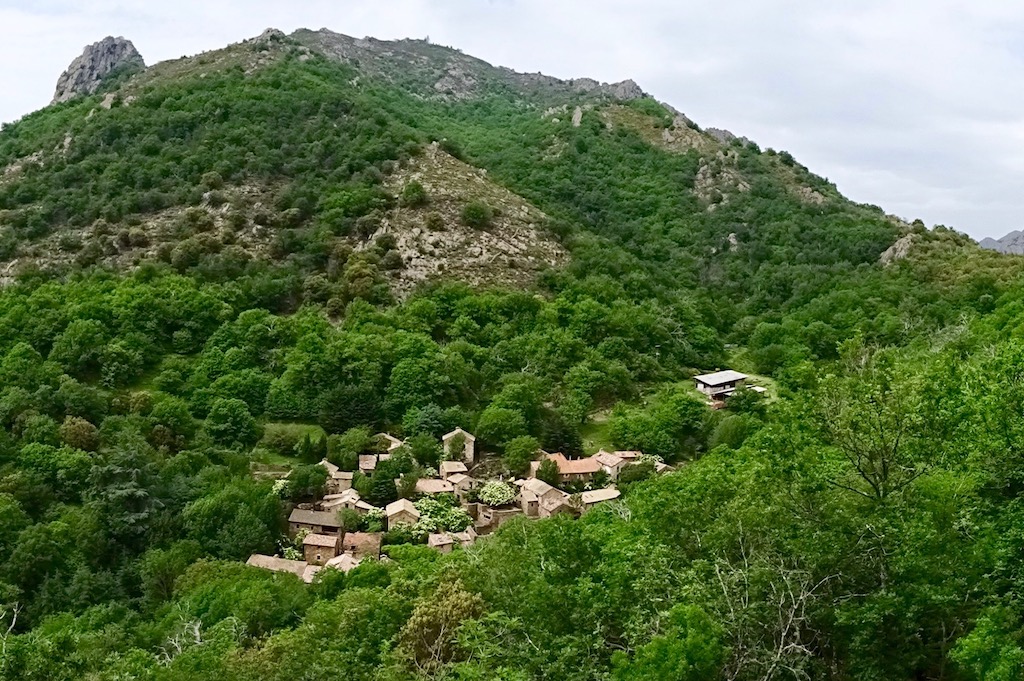
A magical place
Participants on our Symphonic Holidays in Bardou have described it as a magical place: a rustic hamlet nestling in the mountains with its medieval stone houses and adjoining forest of wild chestnut and oak trees that allows you to disconnect from the hustle and bustle of daily life. This special atmosphere is perfect for a musical retreat, where you can focus on music, nature and being with other musicians.
Bardou is in the Languedoc-Roussillon region of Southern France, located at the end of a long road that winds up from the valley below. Situated approximately 600 m above sea level on the southern edge of the Massif Central mountain range in the Natural Regional Park of Upper Languedoc, it enjoys a warm Mediterranean climate. The air is bright and clear and guests who visit Bardou for the first time are usually stunned by the intensity of the stars that light up the sky at night.
A brief history of Bardou
The oldest record of Bardou comes from a population census in 1785 at which time 79 people were living in 14 households in the village, though the oldest houses still standing today were probably built in the 15th century. At the beginning of the 20th century life was tough in an isolated mountain village without electricity or running water and the population of Bardou began to steadily dwindle, with young people leaving to seek work and better living conditions in larger villages and towns. When the dirt road to the valley was built in 1924, the majority of those left used it to leave the village. In 1925, there were only six remaining households and by the winter of 1967 only a single man was left, Achille Bonnet.
In May of that same year, while hiking up the mountain, Klaus and Jean Erhardt and their four children discovered Bardou. They immediately fell in love with the abandoned ruins of the medieval village and purchased Monsieur Bonnet’s property, as he had, by this time already moved to Mons but was continuing to maintain his gardens. They continued to buy the remaining houses and ruins in the village over the years and so Bardou now has the unique atmosphere of a private village.
The Erhardt family lived like pioneers in those early years, first clearing the village of overgrown vegetation and making the most basic repairs to the houses, welcoming guests in return for help with the village’s restoration. Many of the houses were named after those who helped during those early years.
The Erhardt’s used only authentic materials that were true to the former style of the village and their restoration was done with the utmost care and respect of the environment. Electricity was only introduced in 1994! Following the death of Klaus in 2009 and Jean in 2016, the village has now been taken over by their daughter Elizabeth and her husband Brian Nolan who continue to run the village with the same ethos.
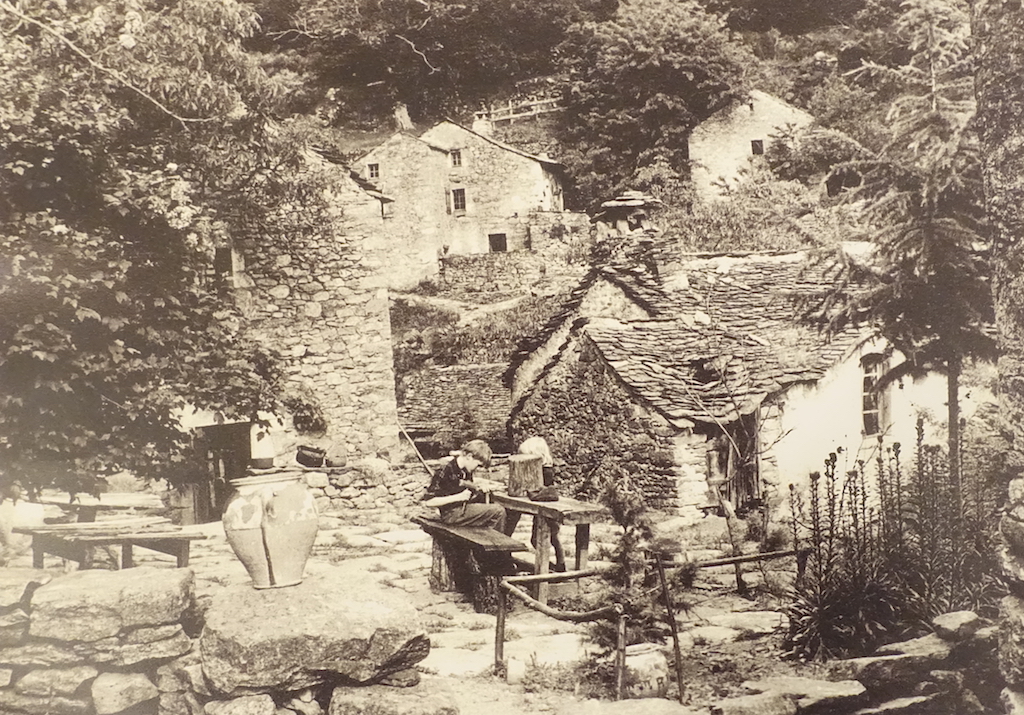
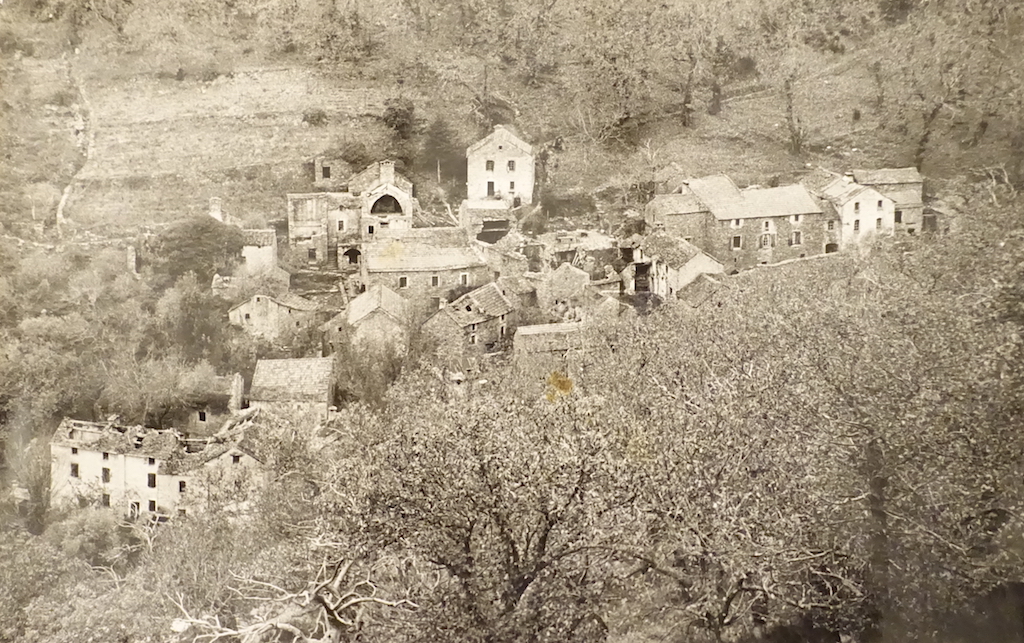
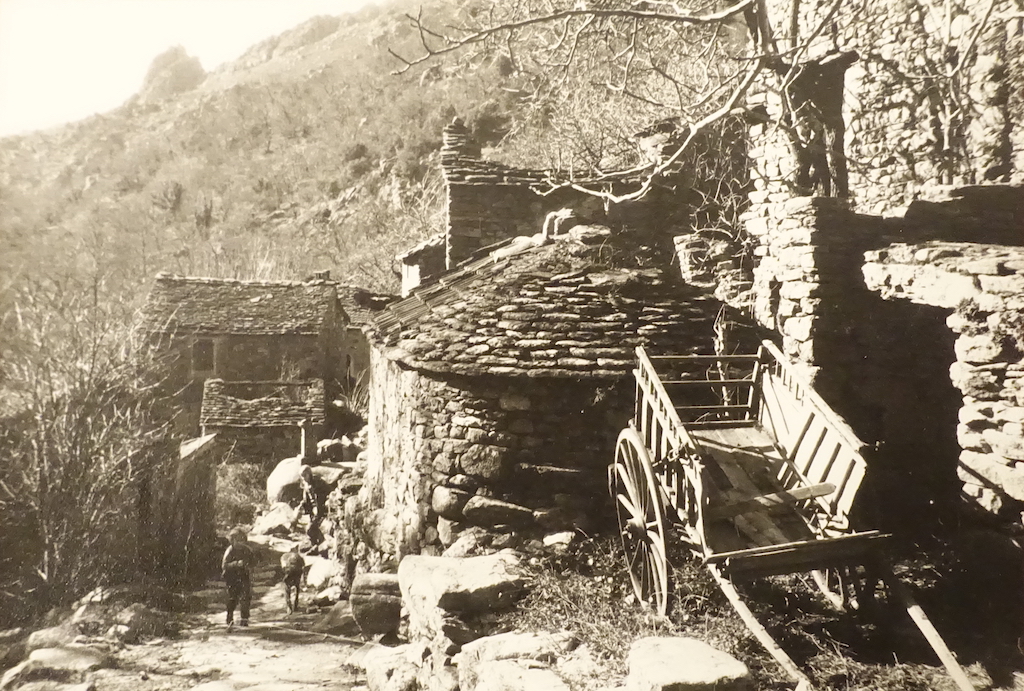
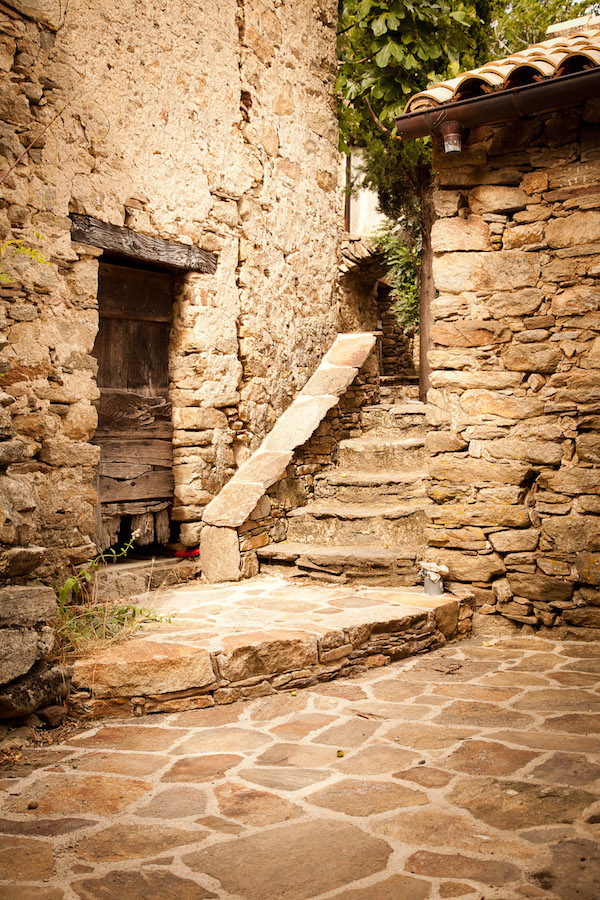
Accommodation
All the houses are built with dry stone walls and the village is a labyrinth of narrow stone paths between the houses, many of which lead up over the mountains. Each house has its own history and its own unique charm.
The standard of the houses reflect the humble nature of the place in general. The houses for 2 – 6 people all have cold running water and a basic kitchen, and in some cases bathrooms and hot showers. There is a central block of toilets and warm showers with washing facilities in the centre of the village.
In Bardou the tap water comes from a local mountain source. It is very pure and does not contain any chemicals and as such makes excellent tea or coffee, but is not recommended for drinking if it hasn’t been boiled. There is also a natural spring in the village that provides a fountain of cool, fresh drinking water.
As there is so little external lighting, an electric torch is an essential companion when walking through the hamlet after the sun goes down.
Enjoying nature
Bardou is a popular holiday destination for those who enjoy the simplicity of natural living. It is the perfect place for hiking and swimming in secluded mountain streams, waterfalls and crystal-clear rock pools. Several marked trails offer short or long-distance walks for all levels of fitness. Hiking shoes and a flash light are strongly recommended.
The nearest mountain stream is the refreshingly clear water of Small Paradise, a twenty-minute hike from the village, walking on a comfortable trail. To reach the Grand Paradise, a waterfall with a deep rock pool and a series of other such natural bathtubs, you walk 30-45 minutes along a partly steep trail and slope, including walking on rocks.
Another popular destination for a short hike is Héric in the Héric Canyon. This takes about 30 minutes on a partly steep but well maintained and marked trail and takes you through a shady chestnut and oak forest, crossing a stunning ancient bridge of natural stones. Héric is a hamlet even smaller than Bardou, but has a cafe where you can get a coffee or cool drink for your way back uphill to Bardou. In years gone by, the children from Héric made this journey every day to attend school in Bardou.
There are a large variety of hikes for people interested in exploring further, such as the trail leading up on past Héric going all the way up to the plateau of the Caroux mountains. This hike – two hours there and two hours back - includes a wide variety of different mountain flora and fauna and truly spectacular views of the surrounding, views of the Pyrenees and the Mediterranean Sea. Click here for a map of the area with additional information from the local tourist office.
In Bardou you can meet peacocks, cats, midget chickens, grumpy geese, and during their frequent nocturnal visits also Mouflon (wild sheep with large curved horns, who are extremely shy and disappear into the wood at the slightest interruption from humans).
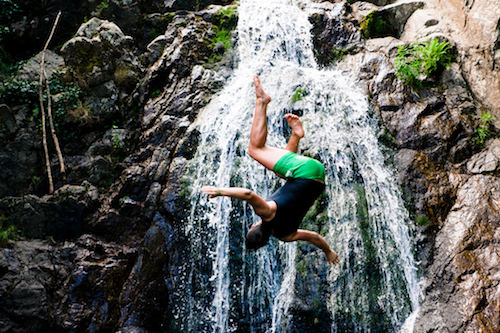
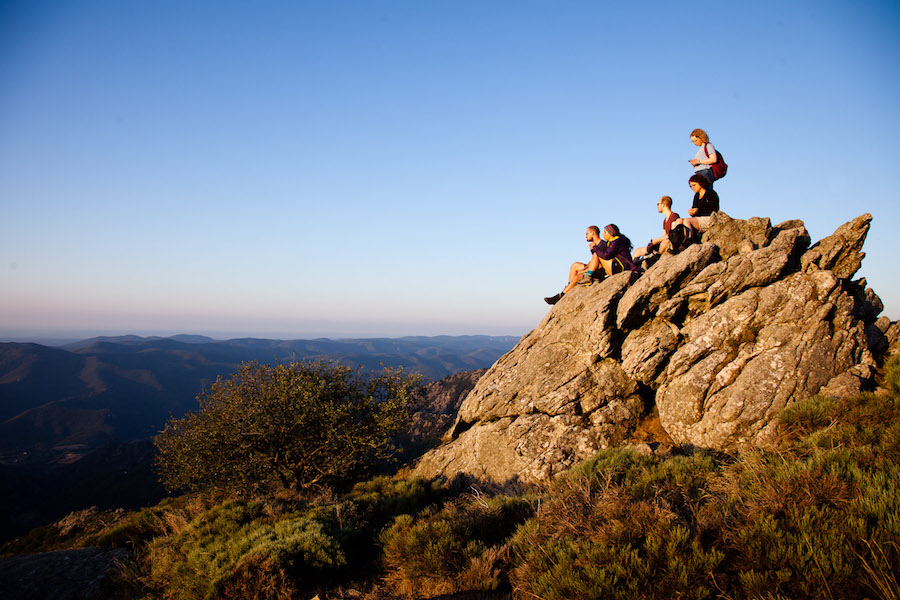
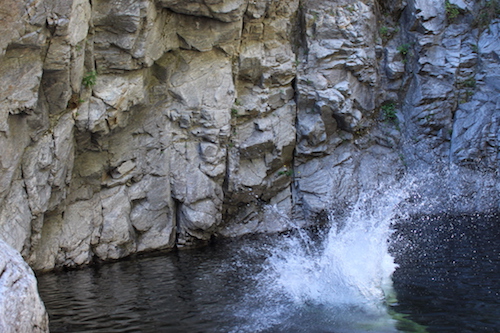
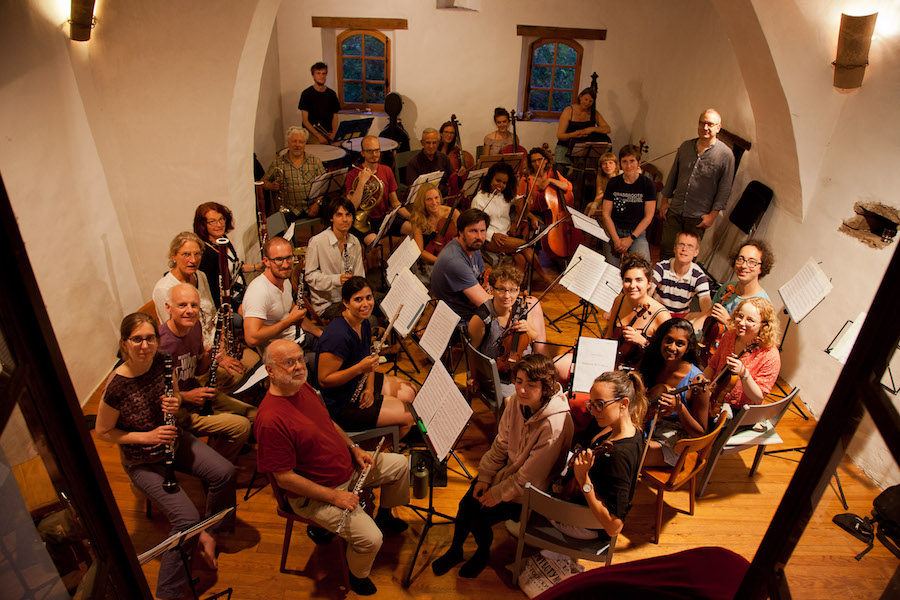

A musical hub
Bardou has also become a place of music. Musicians congregate here every year from all over the world to rehearse. At the end of their stay, they give concerts in churches of nearby villages. Several international professional pianist and chamber musicians also return to Bardou each year. These all form part of the Bardou concert Programme of 25 -30 concerts each year, in collaboration with surrounding villages and associations where the concerts are performed.
In the early 1990’s, students from Germany started to form, every summer a symphony orchestra in Bardou, which became the traditional Sinfonietta Bardou. Amateur players mainly from Germany gathered in Bardou for a music vacation, which was organized by volunteers. Since 2014 this has been managed by Jonas Hees who opened up the project internationally and developed it into da capo orchestra & travel with its Symphonic Holidays with various destinations.
In Bardou, the venue for our tutti rehearsals allows for a maximum of around 35 musicians and it is this chamber setting that gives each player the opportunity to connect with each other and brings out the best in the orchestral experience.
Shopping in Bardou
You can leave your purse at home when you come up to Bardou for enjoying music and nature. You won't find any shop here, and everything is included in the fees, starting from the first coffee in the morning until the last glass of wine with cheese at the end of the evening after rehearsals, when we meet on one of the cozy terraces.
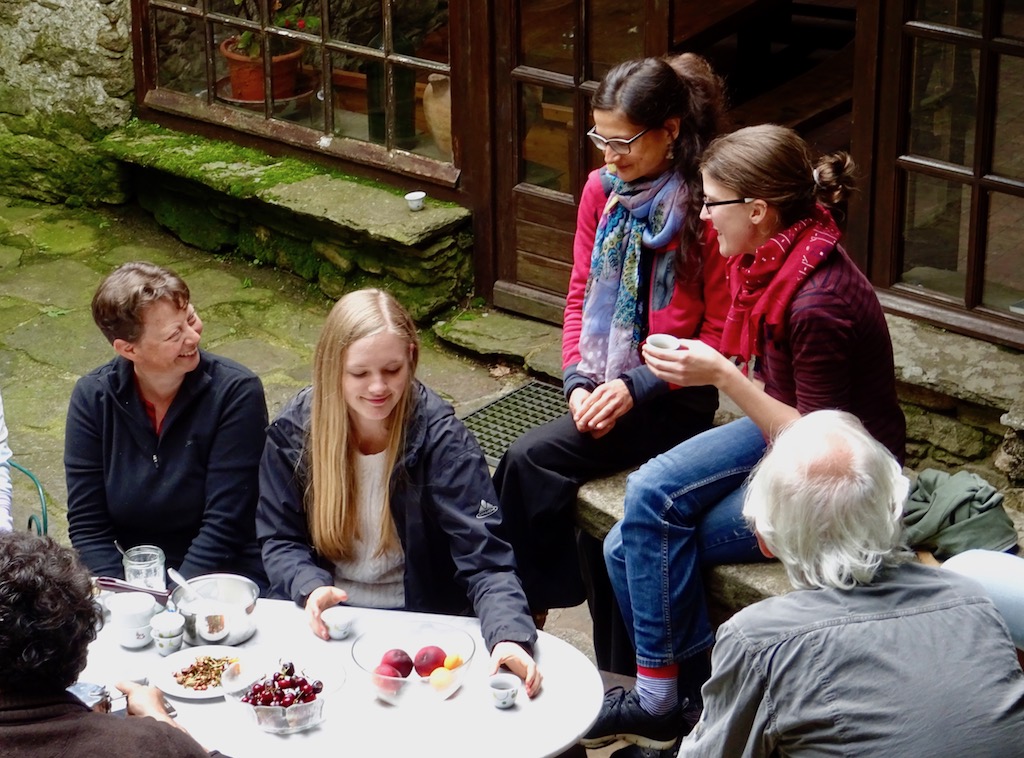
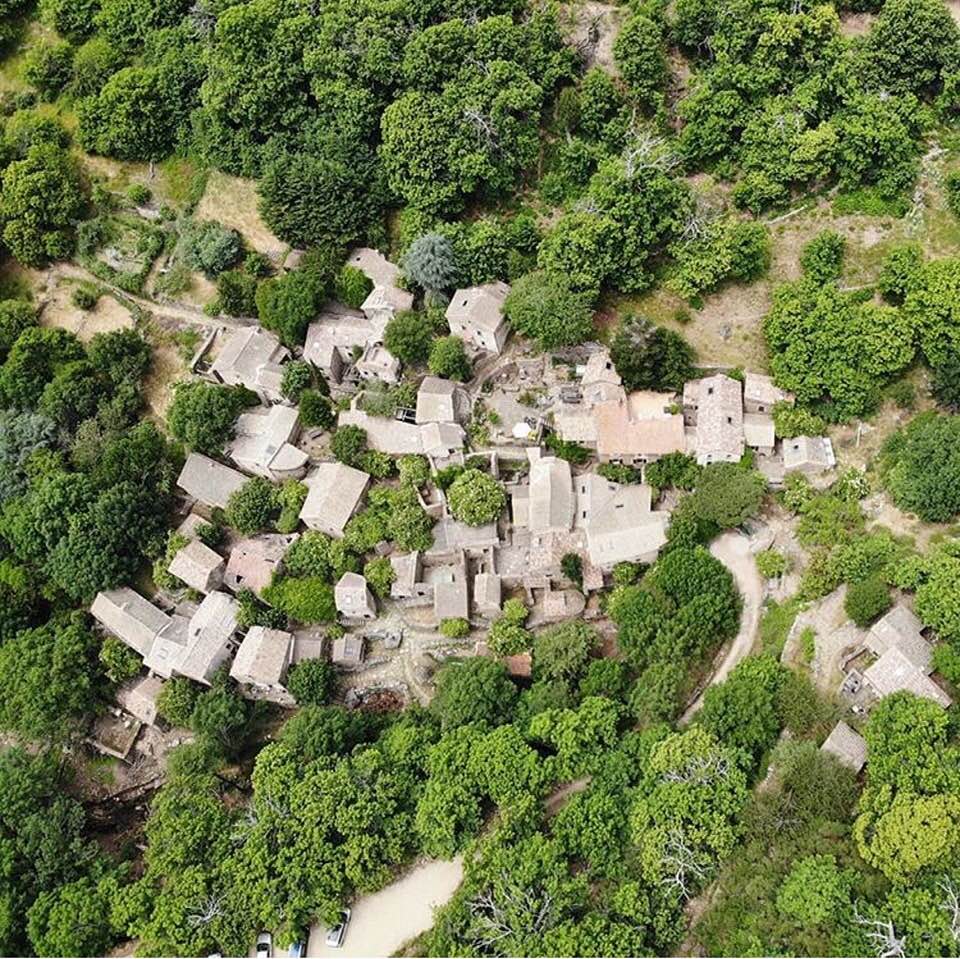
Climate
Spring comes early to the south of France and in May temperatures are usually pleasant and warm. In the summer, sunshine and warm weather is almost guaranteed, so bring plenty of sunblock, sun hats, etc. Temperatures are frequently over 25 °C during the day and usually warm in the evening, although in late August the evenings can become cooler, requiring a light jacket or pullover. The village is 40km from the coast and 600m above sea level, so it is usually spared the extreme temperatures (and mosquitoes) that are often experienced on the beaches of the south of France. There can be the odd summer thunderstorm, but these are occasional and clear up quickly, so rain during the summer is relatively rare.
In September, it normally remains warm and sunny during the day, but cooler in the evenings. The chance of rain showers remains low until late September or October. Many of the houses are equipped with efficient wood stoves, which can be used to warm the houses in the evening if needed.
Access
The road up to Bardou from Mons la Trivalle climbs about 5km up a relatively narrow and winding road with some steep hairpin bends, providing some breathtakingly beautiful views of mountains.
Since Bardou is at the end of the road, there is normally very little traffic. If you meet a car coming in the opposite direction, there are points on the road where cars can pull over to allow others to pass. The road is perfectly doable for normal cars, but for the first time, less confident drivers might find it challenging, which is why we recommend that drivers arrive during daylight.
The nearest airports and long distance train stations are Montpellier, Béziers and Toulouse. From here you have connecting trains or busses to Mons la Trivalle and Bédarieux where we would come and pick you up (Bardou is not connected to public transport). Click here for detailed information. We are happy to help you with organizing your trip.
Arriving by foot: The GR7 runs through Bardou, a long distance trail stretching from the Vosges mountains in Alsace up to the Pyrenees. To be considered by flutists only.
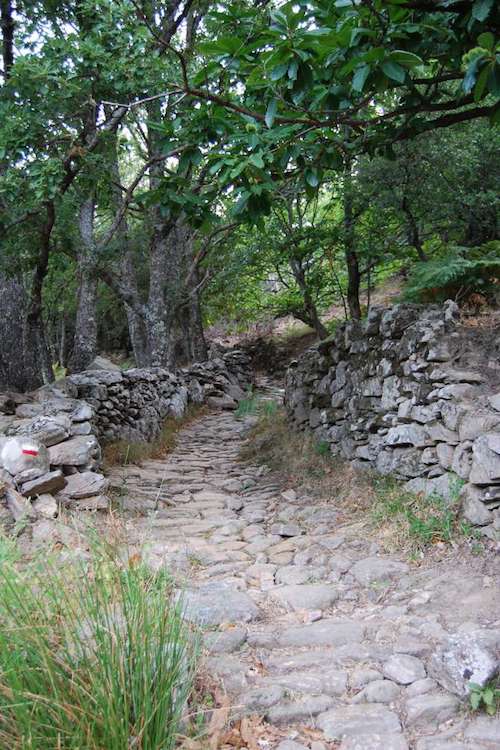



 Jonas Hees a fondé da capo orchestra & travel en 2016 avec Frédéric Tschumi. Violoncelliste amateur, il est aujourd’hui responsable de la gestion de da capo et de ses programmes. Chargé d’organiser la Sinfonietta à Bardou pendant plusieurs années, cette riche expérience lui a donné l’idée de développer et d´élargir le concept de vacances musicales à des musiciens amateurs. En tant que cuisinier passionné, il saura aussi mettre toute son attention pour vous proposer d’excellents repas durant vos vacances.
Jonas Hees a fondé da capo orchestra & travel en 2016 avec Frédéric Tschumi. Violoncelliste amateur, il est aujourd’hui responsable de la gestion de da capo et de ses programmes. Chargé d’organiser la Sinfonietta à Bardou pendant plusieurs années, cette riche expérience lui a donné l’idée de développer et d´élargir le concept de vacances musicales à des musiciens amateurs. En tant que cuisinier passionné, il saura aussi mettre toute son attention pour vous proposer d’excellents repas durant vos vacances.


